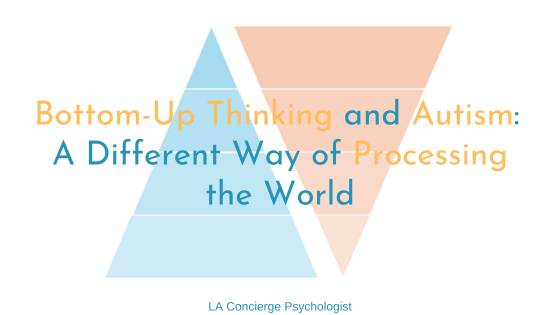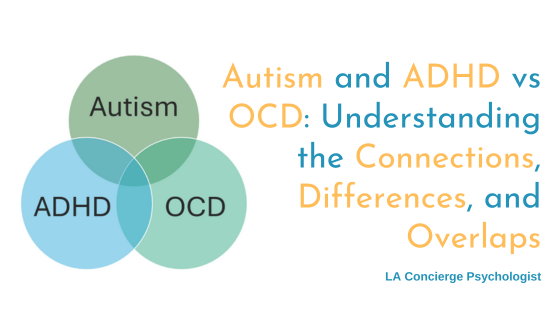Communication-related conflict is a normal part of all relationships. In our experience as adult autism therapists, it is equally prevalent in autism-affected romantic relationships. If you’re autistic—but your partner isn’t—you may be wondering how autism can affect communication in mixed-neurotype relationships. You may also be searching for ways to reduce misunderstandings that may be related to your autism when dating.
Successful communication is a two-way street. If you and your partner are failing to communicate with clarity and compassion, that’s something you should both work on. That said, there’s only one person you can control: yourself. If you’re ready to take the initiative and work toward better communication in your relationship, you can start by cultivating these five qualities/values:
1. Self-awareness
This refers to a person’s ability to step back from a situation and consider their emotional state before reacting. A self-aware person often knows when they are starting to lose their temper, for example. This awareness allows them to watch their words more carefully lest they say something they later regret. Being aware of their feelings also enables them to walk away and cool down before continuing a heated conversation.
To become more self-aware, you’ll need to continuously explore your own needs and preferences. If you’re autistic, you might habitually repress your feelings in your marriage or when dating in order to make things go smoothly. You may have been taught to repress your own needs when growing up. As a result, you might have lost track of what you want and feel. To remedy this, you might need to invest some time exploring your personal goals and values.
Until you cultivate self-awareness, you might not even understand why certain situations upset you. For example, imagine you’re at a restaurant and your partner is trying to have a serious conversation with you, but you’re becoming anxious and irritable. If you don’t take the time to consider how you feel and why, you’ll be stuck with your discomfort. Your resulting irritability might make it more likely you’ll get angry or lash out at your partner. Once you realize that you’re overstimulated by the noise and movement all around you, you can communicate to your partner the need to have serious conversations in a more comfortable environment. And, likely, the need to eat at a different restaurant!
2. Reciprocity
Reciprocity is an acknowledgment that both partners in a relationship should take up equal space. Even when one partner feels like they must be “right” and the other person “wrong,” reciprocity suggests that both perspectives are equally valid. Some may think that these are autism-specific problems in relationships, but it’s actually a common result of being in a mixed-neurotype relationship because of the double empathy problem. All partners need to take time to understand their partner’s perspective and learn to respect their point of view.
It takes practice to cultivate reciprocity as a personal value since most people find it challenging to empathize with perspectives other than their own. For example, it might be hard for you to respect your partner’s opinion that attending holiday work parties is essential and enjoyable when you view them as optional and torturous. It’s important to note that reciprocity doesn’t require you to yield to your partner’s opinions all the time. However, it does require you to respect their point of view.
Reciprocity also means honoring your own needs. If you’re autistic, you might struggle with this because of internalized ableism. People sometimes refer to autism traits as “symptoms” and talk about autism as if it were a disease that needs to be cured. If you’ve internalized the idea that you need to repress your autistic tendencies, it may be hard to accept that your needs are valid. In turn, you don’t ask for things you need, like having your partner communicate in a more direct, clearer manner.
By seeking out neurodiversity-affirmative support and reminding yourself of the importance of reciprocity, you can begin to internalize a newer, more balanced perspective. You will then find it easier to express yourself while simultaneously respecting your partner during conflicts.
3. Honesty
Honesty and integrity are highly admirable traits often associated with autism. In mixed-neurotype relationships, complete honesty is typically viewed as an essential component by the autistic partner. At the same time, some autistic adults hesitate to share their feelings in an attempt to avoid conflict.
For example, imagine that your partner bought you a scratchy, uncomfortable sweater. They suggest that you wear the sweater during your date night walk in the park. You might be tempted to wear it to spare your partner’s feelings, but that wouldn’t be honest. A more authentic way to handle this situation might be to say something like, “I agree that it’s a stylish shirt. It was really thoughtful of you to pick this out, especially since you know blue is my favorite color. But the texture makes it too uncomfortable to wear.”
Your partner won’t be able to support you or respect your needs unless you communicate with them honestly. At the same time, they might start to think you are cold or uncaring unless you temper your honestly with another essential value: compassion.
4. Compassion
If you aren’t considerate when you speak to your partner, you might come off as aggressive or passive-aggressive—even if you don’t intend to. That will likely cause them to either verbally hit back at you—escalating the argument—or retreat. Neither of these scenarios will result in productive communication.
Most people struggle to be kind when they’re feeling upset. To speak compassionately, it’s essential to allow yourself time to regulate and collect your thoughts when situations get heated. It can also help to remember that if you’re feeling hurt, your partner is likely feeling the same way.
Sometimes compassion involves more than just avoiding intentionally hurtful comments. Before you speak, you also need to consider the potential impact of your words. This is especially important when discussing touchy subjects. If you’re worried that your (honest) statement might cause emotional discomfort, you can add elements of positivity, reciprocity, or gratitude that soften your meaning.
For example, consider a scenario where your partner is trying on clothes for an important work meeting. “How do I look?” they ask. Perhaps the truth is that their suit isn’t very flattering, so you may be tempted to say, “I think it makes you look fat.” After all, they asked your opinion, didn’t they? While this response would be honest, it would not be very compassionate, especially if your partner is sensitive about their weight.
Instead, we recommend you look for a way to communicate both honestly AND compassionately. For example, you might say something along the lines of, “I like the general style of that one, but I think another suit might be more flattering. Maybe the one with pinstripes?”
5. Open-mindedness
Cultivating this character trait can solve so many autism-related marriage/relationship problems! For one thing, it will empower you to be kinder to your partner when you remember that their perspective may be very different (but no less valid) than yours.
Open-mindedness can also protect your self-esteem. For example, imagine that you ask someone you recently met to join you for a romantic dinner, but they decline. If you are closed-minded, you might assume that they dislike you. However, it is just as likely that they like you but don’t know you well enough to be comfortable with a private meeting. If you’re open to different perspectives regarding how quickly a relationship should progress, you will save yourself a lot of heartache.
Another benefit of open-mindedness is how it leads to greater creativity during problem-solving. If your mind is closed, you might imagine that there are only two possible outcomes to an argument: winning or losing. If you allow your partner the opportunity to share their thoughts, they might suggest a totally unexpected compromise that works great for both of you.
Support for Mixed-Neurotype Couples
Being part of a mixed neurotype couple can be amazingly rewarding at times and, at other times, extremely stressful. With the help of an adult autism specialist, you can reduce the strain in your relationship. Send us a message to see how we can help or book a free 20 minute consultation call with Dr. Barajas or Dr. Goldman.



